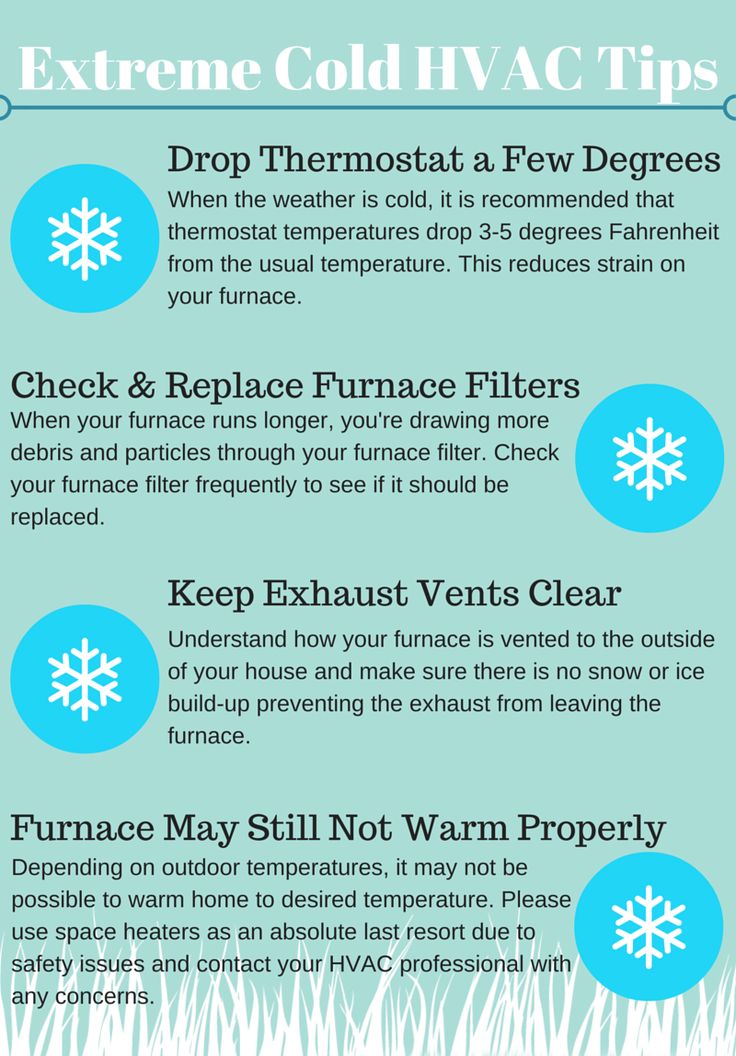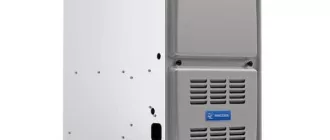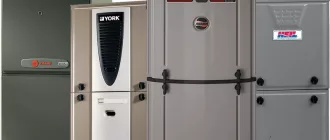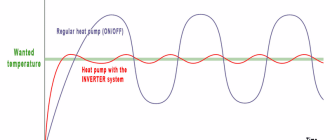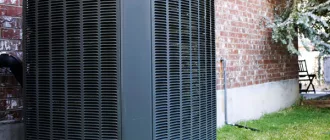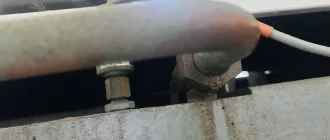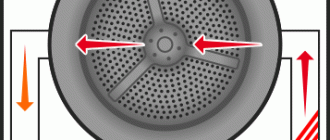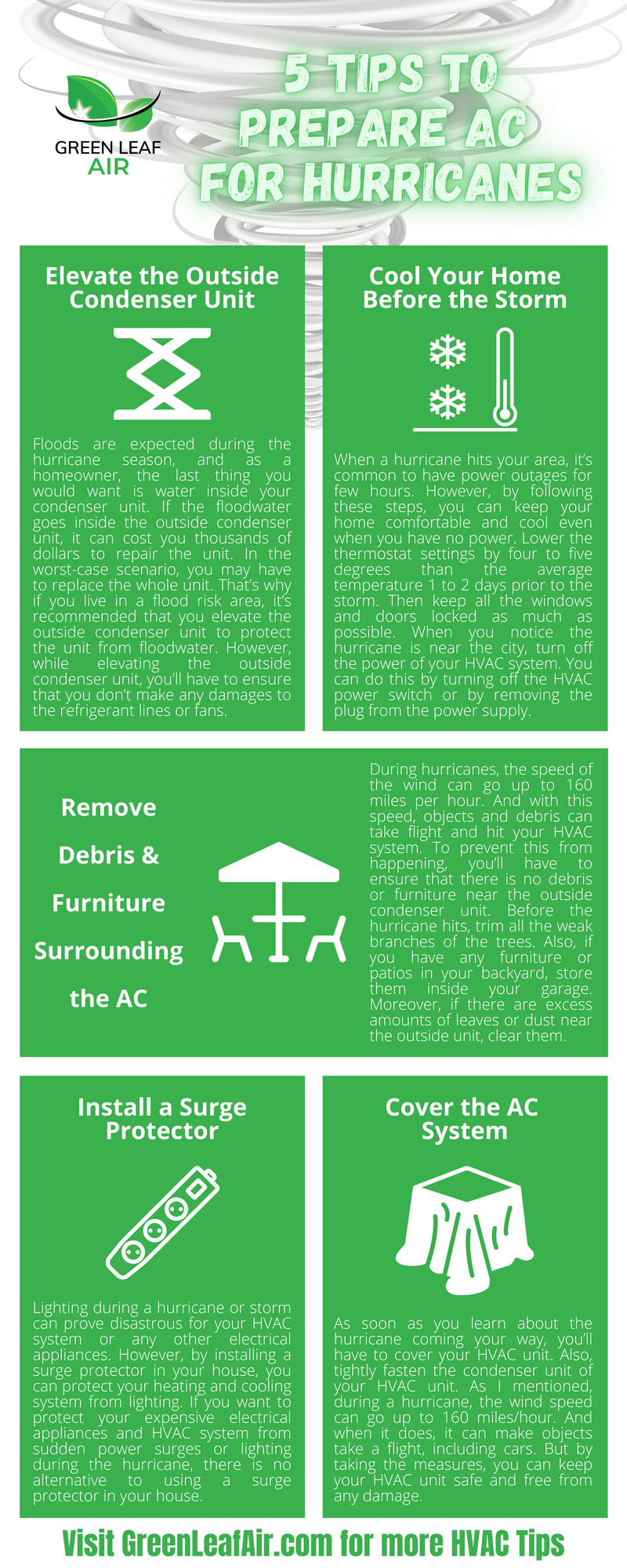
Five Tips to Prepare Your Home’s HVAC for Stormy Weather
When stormy weather is on the horizon, it’s important to make sure your HVAC system is ready to handle the challenges that lie ahead. Storms can wreak havoc on your heating, ventilation, and air conditioning system, so taking a few proactive steps can help you avoid costly repairs and keep your home comfortable during inclement weather. Here are five essential tips to prepare your home’s HVAC for stormy weather:
1. Secure outdoor units: Strong winds and flying debris can cause damage to your outdoor HVAC units. It’s important to secure them properly to prevent any potential harm. Make sure all loose objects are removed from the vicinity and consider fastening the units with hurricane straps or brackets for added stability.
2. Protect your unit with a cover: Investing in a cover for your outdoor units can provide extra protection against the elements. Choose a cover that is waterproof and securely fastens around the unit to prevent water, debris, and leaves from entering and clogging the system.
3. Trim tree branches: Overhanging tree branches pose a significant risk to your HVAC system during a storm. Trim any branches that are close to your unit to minimize the chances of them falling and causing damage. Regular tree maintenance is important to keep your system safe throughout the year.
4. Clear gutters and drains: Ensure that your gutters and drains are free from any debris or blockages. During a storm, excess water needs to flow freely away from your home to prevent flooding. Clogged gutters and drains can cause water to accumulate around your HVAC unit, leading to potential damage.
5. Schedule a professional inspection: Before stormy weather arrives, it’s a good idea to schedule a professional inspection of your HVAC system. A qualified technician can identify any potential issues and make necessary repairs or adjustments to ensure your system is in optimal condition to withstand the storms ahead.
By taking these five essential tips into account, you can better prepare your home’s HVAC system for stormy weather. Don’t wait until it’s too late – be proactive and protect your investment for years to come.
Inspect and Clean Outdoor Unit
One of the most important tips to prepare your home’s HVAC system for stormy weather is to inspect and clean the outdoor unit. The outdoor unit is exposed to the elements and can collect debris such as leaves, dirt, and twigs.
To ensure that your HVAC system functions properly during stormy weather, follow these steps to inspect and clean the outdoor unit:
| Step 1: | Turn off the power. Before starting any cleaning or inspection, make sure to turn off the power to the outdoor unit. This will prevent any accidents or electric shocks. |
| Step 2: | Remove debris. Carefully remove any debris that has collected around the outdoor unit. Use gloves and a brush to gently brush away leaves, dirt, and other debris. Be careful not to damage any delicate components. |
| Step 3: | Clean the fins. The fins on the outdoor unit can become clogged with dirt and debris, reducing the unit’s efficiency. Use a vacuum cleaner or a soft brush to clean the fins gently. Make sure to remove any buildup of debris between the fins. |
| Step 4: | Inspect for damage. After cleaning the outdoor unit, carefully inspect it for any signs of damage or wear. Look for bent or damaged fins, loose wiring, or other issues that may affect the unit’s performance. If you notice any problems, contact a professional HVAC technician for repairs. |
| Step 5: | Trim vegetation. Overgrown vegetation can restrict airflow to the outdoor unit, reducing its efficiency. Trim any bushes, shrubs, or trees that are obstructing the unit. Make sure to maintain at least two feet of clearance around the unit to allow for proper airflow. |
By inspecting and cleaning the outdoor unit of your HVAC system, you can ensure that it is in optimal condition to handle stormy weather. Following these five essential tips will help your HVAC system perform efficiently and effectively, keeping your home comfortable and safe during any weather conditions.
Secure Loose Components
In order to prepare your HVAC system for stormy weather, it’s important to secure any loose components. Strong winds and heavy rainfall can cause loose parts to become dislodged or damaged, leading to potential problems with your system.
Here are five essential tips to help you secure loose components:
- Inspect your outdoor unit: Take a close look at your outdoor HVAC unit and make sure all bolts and screws are tightly secured. If you notice any loose or missing parts, tighten or replace them as necessary.
- Check the ductwork: Examine the ductwork throughout your home to ensure that all connections are secure. If you find any loose joints or leaks, use foil tape or mastic sealant to seal them. This will help prevent air leaks and maintain efficient airflow.
- Tighten electrical connections: Go through your HVAC system and check all electrical connections. Make sure they are tight and properly insulated. Loose or damaged electrical connections can pose a safety hazard and may cause your system to malfunction during a storm.
- Secure loose outdoor equipment: If you have any loose equipment or tools near your outdoor HVAC unit, make sure to secure them or store them indoors. These items can become projectiles during high winds, potentially causing damage to your unit or surrounding areas.
- Trim nearby trees and branches: Overhanging tree limbs and branches can pose a threat to your HVAC system during stormy weather. Trim any branches that are close to your unit to prevent them from falling and causing damage.
By following these tips and securing loose components, you can help protect your HVAC system from potential damage during stormy weather.
Check and Replace Air Filters
One important step to prepare your home’s HVAC system for stormy weather is to check and replace the air filters. Weather conditions like storms can cause debris, dirt, and dust to accumulate in the air filters, which can lead to reduced airflow and reduced system efficiency.
Regularly checking and replacing your HVAC system’s air filters can help ensure that clean and filtered air is circulating throughout your home, protecting your family from allergens and maintaining indoor air quality.
When preparing for stormy weather, it’s recommended to inspect the air filters and replace them if they are dirty or clogged. This will help your HVAC system perform optimally during and after the storm.
It’s important to choose the right air filter for your HVAC system. Look for filters with a high MERV (Minimum Efficiency Reporting Value) rating, as they are more effective in capturing smaller particles, such as pollen, pet dander, and dust mites. Consider using filters with a MERV rating between 8 and 12 for optimal performance.
Remember to follow manufacturer’s instructions when replacing the air filters, and make it a habit to check and replace them regularly, at least every three months. This will help ensure that your HVAC system is prepared to handle stormy weather and continue providing you with comfortable and clean indoor air.
Clear Surrounding Debris
One of the essential tips to prepare your home’s HVAC for stormy weather is to clear any surrounding debris. Strong weather conditions like storms and hurricanes can bring heavy winds and rain, which can cause branches, leaves, and other debris to accumulate around your HVAC system.
This debris can clog the system’s vents and obstruct airflow, leading to inefficient cooling or heating. It can also damage the system’s components and affect its overall performance. Therefore, it is crucial to regularly inspect and clear out any debris around your HVAC unit.
Start by removing any fallen branches, twigs, or leaves from the immediate vicinity of the system. Use a rake or broom to brush away any dirt, dust, or loose debris that may have accumulated. Be careful not to damage the unit’s delicate fins or coils while cleaning.
Additionally, make sure to trim any overhanging tree branches or shrubs that could potentially fall or scrape against the unit during a storm. By maintaining a clear and debris-free environment around your HVAC system, you can help it operate efficiently and reduce the risk of damage during stormy weather.
Trim Overhanging Trees
One essential tip for preparing your home’s HVAC system for stormy weather is to trim overhanging trees. Overhanging branches and limbs can pose a serious risk to your HVAC unit during a storm. Strong winds can cause these branches to break off and potentially damage your system or even knock it out of commission.
To prevent this from happening, it’s important to regularly inspect your property for any overhanging trees or large limbs that could potentially pose a threat to your HVAC system. If you notice any trees or limbs that are too close to your unit, it’s recommended to trim them back or even remove them entirely.
Trimming overhanging trees not only helps protect your HVAC system from storm damage, but it also allows for better airflow around the unit. By removing any obstructions, you can ensure that your system can function efficiently and effectively, even during extreme weather conditions.
Make sure to perform this task well in advance of any stormy weather to give yourself enough time to safely trim or remove any overhanging trees. If you’re unsure about how to properly trim trees or feel uncomfortable doing it yourself, it’s best to consult with a professional tree service or arborist.
Remember, taking the time to trim overhanging trees around your home can help prevent costly repairs to your HVAC system and ensure its continued performance, no matter the weather conditions.
Install Surge Protector
In stormy weather, your HVAC system is at risk of power surges caused by lightning strikes or power outages. These power surges can cause significant damage to your HVAC unit, leading to costly repairs or even replacements.
To prepare your HVAC system for stormy weather, one of the most important steps you can take is to install a surge protector. A surge protector is designed to absorb and redirect excess electrical energy, keeping your HVAC system safe from power surges.
Here are five essential tips to consider when installing a surge protector for your HVAC system:
- Choose a surge protector specifically designed for HVAC systems. These surge protectors are designed to handle the electrical needs of your HVAC unit and provide optimal protection.
- Install the surge protector at the electrical panel. This allows the surge protector to protect the entire HVAC system, including the compressor and other sensitive components.
- Ensure that the surge protector is properly grounded. Proper grounding is essential for the surge protector to function effectively and provide the necessary protection.
- Regularly inspect the surge protector for any signs of damage or wear. If you notice any issues, contact a professional to repair or replace the surge protector.
- Consider investing in a whole-house surge protection system. A whole-house surge protection system can provide additional protection for all electrical devices in your home, including your HVAC system.
By installing a surge protector for your HVAC system, you can protect it from power surges and ensure its longevity. Taking this proactive step can save you from expensive repairs and replacements in the future.
Protect Outdoor Unit
In stormy weather, your home’s HVAC system’s outdoor unit is particularly vulnerable to damage. Here are five tips to help you prepare and protect your outdoor unit:
- Secure the unit: Make sure your outdoor unit is securely fastened in place. Strong winds can easily dislodge it, causing it to fall and potentially get damaged. Use anchors or straps to secure it to the ground or a sturdy surface.
- Clear surrounding area: Remove any loose objects, such as patio furniture or debris, that could be blown into the unit during a storm. These objects can cause significant damage if they collide with the unit’s delicate components.
- Trim nearby trees: Trim any branches or limbs that are hanging over or near the outdoor unit. In a storm, these branches can break off and crash into the unit, causing severe damage.
- Cover the unit: Invest in a sturdy cover or tarp to protect the outdoor unit from rain, hail, and other storm debris. Ensure that the cover is securely fastened to prevent it from blowing away and causing further damage.
- Monitor weather conditions: Stay informed about approaching storms and severe weather conditions. If a storm is predicted, take the necessary precautions to protect your outdoor unit, such as turning off the power to the unit and covering it.
By following these tips, you can help ensure that your outdoor unit remains protected during stormy weather, reducing the risk of damage and potential costly repairs.
Test Backup Power Source
One of the most essential tips to prepare your home’s HVAC system for stormy weather is to test your backup power source. Storms can often result in power outages, which can leave your HVAC system without power. Without power, your HVAC system will not be able to function properly, leaving you without heating or cooling during an already challenging time.
To ensure that your HVAC system continues to operate even in the event of a power outage, it is important to regularly test your backup power source. This can be a generator or another type of backup power system. By testing your backup power source, you can identify any issues or malfunctions before a storm hits and make sure that it is ready to provide power to your HVAC system when needed.
When testing your backup power source, make sure that it is properly connected to your HVAC system and that it is functioning correctly. Test it by turning off the main power supply and switching to the backup power source. Monitor your HVAC system to ensure that it is receiving power and operating as expected.
Additionally, it is important to have a plan in place for refueling or recharging your backup power source during an extended power outage. Make sure you have enough fuel or batteries to last through the storm, and have a backup plan in case supplies become limited. Consider consulting with a professional HVAC technician to ensure that your backup power source is properly installed and maintained.
By testing your backup power source before a stormy weather hits, you can have peace of mind knowing that your HVAC system will continue to function, providing you with comfort and safety even during challenging weather conditions.
Check and Seal Ductwork
One important step to prepare your home’s HVAC system for stormy weather is to check and seal the ductwork. Stormy weather can cause strong winds and heavy rain, which can lead to leaks and damage in the ductwork. This can result in energy loss and inefficient heating or cooling.
To ensure that your HVAC system works effectively during stormy weather, follow these tips:
| 1. | Inspect the ductwork for any signs of damage or leaks. Look for loose connections, holes, or cracks in the ducts. |
| 2. | Seal any leaks or gaps in the ductwork using a professional-grade duct sealant or duct tape. Make sure to clean the area before applying the sealant for better adhesion. |
| 3. | Consider insulating the ductwork to prevent heat loss during stormy weather. Insulation can also help to reduce condensation and prevent water damage. |
| 4. | Ensure that all duct joints are properly connected and sealed. Use metal screws or clamps to secure the connections and prevent air leakage. |
| 5. | Regularly clean and maintain the ductwork to remove any dust, debris, or mold that can hinder the airflow. Schedule professional duct cleaning at least once a year. |
By checking and sealing the ductwork, you can improve the efficiency of your HVAC system and protect it from stormy weather. Don’t forget to consult a professional HVAC technician if you need assistance with inspecting or sealing your ductwork.
Consider a Generator
If you live in an area prone to stormy weather, it’s important to prepare your HVAC system for power outages. One of the most essential tips for doing so is to consider investing in a generator.
A generator can be a lifesaver during storms or power outages, as it can provide backup power for your HVAC system and other essential appliances in your home. This means that even if the electricity goes out, you can still keep your home comfortable and safe.
When choosing a generator, make sure to consider the power requirements of your HVAC system. It’s important to select a generator that is capable of powering your HVAC unit, as well as any other appliances or electronics you may need during a power outage.
Additionally, it’s important to properly maintain and test your generator on a regular basis to ensure that it will function properly when you need it most. This includes checking the fuel levels, changing the oil, and making any necessary repairs or upgrades.
In conclusion, considering a generator is one of the top five tips for preparing your HVAC system for stormy weather. By investing in a generator and properly maintaining it, you can ensure that your home remains comfortable and safe during power outages.
Have a Professional Inspection
One of the most important steps in preparing your home’s HVAC system for stormy weather is to have a professional inspection. An HVAC professional can assess the condition of your system and identify any potential issues that could arise during inclement weather.
During the inspection, the HVAC technician will check the system’s components, including the outdoor unit, indoor unit, and ductwork, for any signs of wear or damage. They will also clean and lubricate moving parts, tighten electrical connections, and check the refrigerant levels to ensure optimal performance.
Having a professional inspection before stormy weather hits can help prevent any unexpected breakdowns or malfunctions that could leave you without heating or cooling when you need it most. It can also save you money in the long run by identifying and addressing any minor issues before they turn into major repairs.
Additionally, an HVAC professional can provide recommendations on how to further protect your system during stormy weather. This may include installing surge protectors, securing outdoor units, or trimming nearby trees or branches that could potentially damage the system.
Overall, investing in a professional inspection for your home’s HVAC system is a proactive step to ensure its reliability and performance during stormy weather. It’s better to be prepared and address any issues beforehand rather than dealing with the consequences of a malfunctioning system during a storm.
Prepare for Flooding
Flooding can be a major concern during stormy weather, and it’s important to take steps to protect your home’s HVAC system. Here are five essential tips to help you prepare:
- Secure outdoor HVAC units: Make sure your outdoor HVAC unit is securely fastened to its base to prevent it from being dislodged or damaged by floodwaters. You can also elevate the unit to a higher platform if necessary.
- Install a sump pump: Consider installing a sump pump in your basement or crawl space to help remove excess water in the event of flooding. This can help prevent water damage to your HVAC system and other belongings.
- Inspect and seal ductwork: Check your HVAC system’s ductwork for any cracks or leaks that could allow water to enter. Seal these areas with duct mastic or foil tape to keep water out.
- Elevate electrical components: If your HVAC system has electrical components located in a low-lying area, consider elevating them to a higher location. This can help protect them from flooding and potential electrical damage.
- Have a backup power source: During a storm, power outages are common. Consider investing in a backup power source, such as a generator, to keep your HVAC system running if the main power supply is disrupted.
By taking these steps to prepare for flooding, you can help protect your home’s HVAC system and reduce the risk of damage during stormy weather. Stay safe and be prepared!
Keep Gutters and Drains Clear
One of the most important tips to prepare your home’s HVAC system for stormy weather is to keep gutters and drains clear.
Gutters and drains play a crucial role in protecting your home from water damage, especially during heavy rainfall. When they are clogged with debris such as leaves, twigs, and dirt, the water cannot flow freely, leading to potential blockages and overflow.
To prevent this, it is essential to regularly clean your gutters and drains. Start by removing any visible debris using a gloved hand or a small trowel. Dispose of the debris in a trash bag or compost bin.
Next, use a hose to flush out any remaining dirt and buildup. Start at the downspout and work your way towards the main gutter, ensuring that the water is flowing smoothly. If you notice any blockages or slow drainage, you may need to use a plumber’s snake or call a professional for assistance.
Regular maintenance of your gutters and drains will not only help protect your HVAC system but also prevent potential water damage to your home’s foundation, walls, and landscape.
Remember, when it comes to stormy weather, being proactive is key. Don’t wait until a heavy rainstorm hits to clean your gutters and drains. By keeping them clear year-round, you can ensure that your home’s HVAC system is prepared to handle any weather conditions.
Follow these five essential tips to prepare your home’s HVAC system for stormy weather, including keeping your gutters and drains clear, and you can have peace of mind knowing that your home is protected.
Turn Off Outdoor Unit in Extreme Weather
One of the most important tips to prepare your home’s HVAC system for stormy weather is to turn off the outdoor unit. Extreme weather conditions such as hurricanes, heavy thunderstorms, or blizzards can cause significant damage to the outdoor unit if it is left running.
Here are five essential tips to help you turn off the outdoor unit in extreme weather:
- Locate the outdoor unit: Take a moment to find the outdoor unit of your HVAC system. It is usually located on the side or back of your house.
- Power off the unit: Locate the power switch near the outdoor unit and turn it off. This will prevent any potential electrical damage during the storm.
- Clear the area: Make sure the area around the outdoor unit is free from any debris, such as branches or loose items that can be blown around by strong winds. This will help protect the unit from potential damage.
- Cover the unit: If possible, cover the outdoor unit with a sturdy waterproof cover. This will provide an extra layer of protection against rain, snow, and other elements.
- Keep the unit off: Keep the outdoor unit turned off until the extreme weather has passed and it is safe to resume normal operation.
By following these tips, you can help protect your home’s HVAC system from potential damage during stormy weather. Remember to always prioritize safety and consult a professional if you have any concerns or questions about preparing your HVAC system for extreme weather conditions.
Secure Windows and Doors
When preparing your home’s HVAC system for stormy weather, it’s important not to overlook the security of your windows and doors. Strong winds and heavy rain can put significant pressure on these areas, potentially causing damage or even allowing water to enter your home.
Here are five essential tips to help you secure your windows and doors:
- Inspect and Repair: Take the time to thoroughly inspect your windows and doors for any existing damage or wear and tear. Repair or replace any cracked glass, damaged frames, or loose hinges.
- Install Weatherstripping: Adding weatherstripping to your windows and doors can help create a tight seal, preventing wind and water from seeping in. Be sure to choose weatherstripping that is high-quality and durable.
- Reinforce with Hurricane Shutters: If you live in an area prone to hurricanes or strong storms, consider installing hurricane shutters. These sturdy, protective coverings can help prevent damage to your windows and provide an additional layer of security.
- Trim Surrounding Trees: Overhanging tree branches can become dangerous projectiles during a storm. Trim and remove any branches that are close to your windows or could potentially cause damage if they were to fall.
- Secure with Storm Windows or Plywood: For added protection, consider installing storm windows or using plywood to cover your windows during extreme weather conditions. This can help reinforce the windows and provide an extra barrier against wind and debris.
By taking the time to secure your windows and doors, you can help protect your home and HVAC system from the damaging effects of stormy weather.
Have Emergency Contacts Handy
In stormy weather, it’s crucial to have a list of emergency contacts readily available. This list should include phone numbers for local HVAC contractors, electricians, and other professionals who can help with any weather-related issues that may arise. Having these contacts on hand can save valuable time in case of an emergency.
Here are five essential tips for preparing your home’s HVAC system for stormy weather:
- Ensure proper drainage to prevent water damage: Check that your HVAC system’s drainage is clear of debris and functioning properly. This will help prevent water from accumulating and causing damage to your system during storms.
- Protect your outdoor unit: Strong winds and debris can harm your outdoor HVAC unit. Secure any loose items around it, such as patio furniture or planters, to prevent them from becoming projectiles during storms. Consider installing a protective cover for added security.
- Inspect and repair damaged seals: Stormy weather can worsen any existing leaks or damages to your HVAC system’s seals. Inspect these seals and replace any that are cracked or damaged. This will help keep your system functioning efficiently and prevent water from entering your home.
- Stock up on air filters: During stormy weather, your HVAC system may be running more often to maintain a comfortable indoor temperature. Make sure you have an ample supply of air filters, as they may need to be replaced more frequently. Clean air filters will help your system operate efficiently and improve indoor air quality.
- Consider a backup power source: Storms can result in power outages, which can leave your home without HVAC ventilation. Consider investing in a backup power source, such as a generator, to ensure your HVAC system can continue running during power interruptions.
By following these essential tips and having emergency contacts readily available, you can better prepare your home’s HVAC system for stormy weather and ensure the comfort and safety of your household.
Consider HVAC Insurance Coverage
When preparing your home’s HVAC system for stormy weather, it’s important to consider insurance coverage. Weather events can cause significant damage to your HVAC system, resulting in costly repairs or even the need for a complete replacement. By having HVAC insurance coverage, you can protect yourself from these unexpected expenses.
Here are five tips to consider when looking for HVAC insurance coverage:
- Research different insurance providers that offer HVAC coverage options.
- Compare coverage plans to find the one that best suits your needs and budget.
- Make sure the insurance policy covers both natural disasters and accidental damage.
- Check if the policy includes coverage for regular maintenance and repairs.
- Consider any additional benefits or discounts offered by the insurance provider.
Having HVAC insurance coverage can give you peace of mind knowing that you are financially protected in case of any storm-related damage to your system. It’s always better to be prepared and have the necessary coverage in place to avoid unexpected expenses.
Q&A:
How can I prepare my home’s HVAC system for stormy weather?
You can prepare your home’s HVAC system for stormy weather by following these 5 essential tips: 1. Clear away any debris from the outdoor unit. 2. Secure your outdoor unit by fastening it down or covering it with a tarp. 3. Shut off the power to the HVAC system before the storm hits. 4. Protect your indoor unit by covering it with a tarp or plastic sheeting. 5. Monitor the weather conditions and adjust your thermostat accordingly to conserve energy.
Why is it important to clear away debris from the outdoor unit before a storm?
Clearing away debris from the outdoor unit is important before a storm because debris such as tree branches or leaves can get sucked into the unit and cause damage to the fan or other components. It can also obstruct airflow and reduce the efficiency of the HVAC system. By keeping the outdoor unit clean, you can ensure optimal performance and prevent potential issues during stormy weather.
Should I cover my outdoor unit with a tarp during stormy weather?
Yes, it is advisable to cover your outdoor unit with a tarp during stormy weather. This will help protect it from flying debris, rain, and other elements that can cause damage. Make sure to secure the tarp properly to prevent it from being blown off by strong winds. Additionally, consider fastening down the unit to the ground or a sturdy surface to further protect it from strong winds.
Can I leave my indoor unit uncovered during stormy weather?
No, it is not recommended to leave your indoor unit uncovered during stormy weather. Moisture from heavy rain can seep into the unit and lead to water damage or electrical issues. To protect your indoor unit, you can cover it with a tarp or plastic sheeting. Make sure to secure the cover properly and remove it after the storm has passed to prevent any mold or mildew growth.
Why should I shut off the power to my HVAC system during a storm?
Shutting off the power to your HVAC system during a storm is important to avoid any electrical hazards. Power surges or lightning strikes can damage the system and even start a fire. By turning off the power, you can minimize the risk of electrical damage and ensure the safety of your home and family. Remember to also unplug any sensitive electronics to protect them from power surges.
How can I prepare my home’s HVAC for stormy weather?
There are five essential tips to prepare your home’s HVAC for stormy weather:

